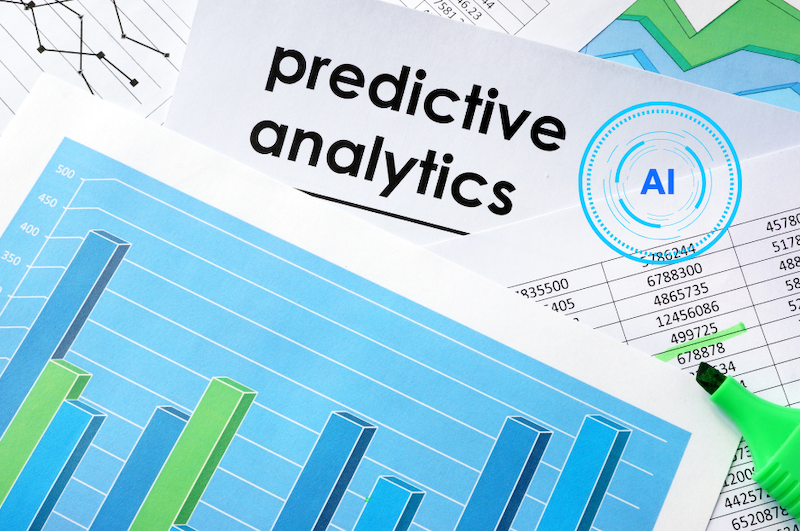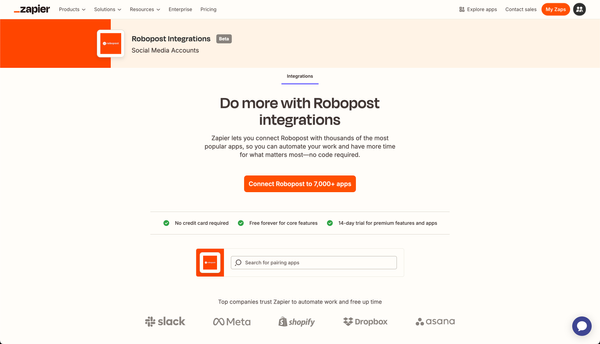Predictive Analytics: How AI is Shaping Future Social Media Trends
Explore how AI shapes social media trends with predictive analytics for future insights and strategies.

Predictive analytics is changing how social media works by using AI to predict new trends and patterns. This article looks at how AI-based predictive analytics is combined with social media data to offer insights that guide the future of online interactions. We’ll cover how data use has evolved, how social media collects data, how predictive models work, how businesses use these insights to gain an edge, and the ethical issues that come with these technologies.
Key Takeaways
- AI-powered predictive analytics uses social media data to customize user experiences and predict upcoming trends.
- The way social media data is used has advanced, leading to better predictive models that improve decision-making and marketing.
- It’s important for businesses to understand predictive analytics basics to use social media data effectively and stay competitive.
- Ethical concerns like privacy, consent, and bias are key as businesses work with predictive analytics.
- New rules and regulations are developing to address the challenges of predictive analytics, ensuring businesses follow guidelines and protect user data.
Introduction to Predictive Analytics and Social Media Data
Understanding Predictive Analytics in Social Media
Predictive analytics uses machine learning and statistics to make predictions based on past data. This means analyzing how users interact and behave to foresee future trends and actions.
The Shift in Social Media Data Use
As social media has gone from being just a way to communicate to becoming a valuable source of user data. This data helps companies better understand and influence consumer behavior. Businesses now focus more on analyzing this data to make informed decisions, rather than just collecting it.
Merging Big Data with Social Media Insights
When big data analytics is combined with social media information, it gives a clearer picture of consumer likes and market trends. This combination helps businesses make more accurate predictions and offer personalized experiences. By using both structured and unstructured data, companies can stay ahead in the fast-changing digital world.
The Role of Social Media in Gathering Data for Predictive Analytics
Analyzing Social Interactions for Predictive Insights
Social media platforms are full of user interactions that can help predict future behaviors and trends. By studying likes, shares, comments, and even emoji use, companies can identify patterns and feelings that are important for making predictions.
Analyzing User Behavior and Collecting Data
The large amount of data users create on social media is incredibly valuable for understanding how they behave. Detailed analysis shows how people interact with content, what they like, and their online habits, which are key for making accurate predictions.
Privacy and Consent in Social Media Data Collection
When gathering data from social media for predictions, privacy and consent are important issues. It's crucial to handle these ethically, making sure that users know their data is being collected and that everything follows the rules.
Understanding the Basics of Predictive Analytics
Key Components of Predictive Analytics Models
Predictive analytics models use data, math-based algorithms, and machine learning to find patterns in past information and predict what might happen in the future. The process usually includes these steps:
- Collecting data
- Organizing the data
- Analyzing the data
- Building the model
- Testing and checking the model
- Using and tracking the model
The Significance of Algorithms in Social Media Predictions
Algorithms are key to making predictions from social media data. They filter out irrelevant information to find important patterns. Choosing the right algorithm can lead to accurate predictions, while the wrong one can result in errors. As social media platforms change, these algorithms also improve, becoming better at predicting future trends.
Leveraging Social Media Data for Accurate Predictions
Enhancing Marketing Strategies with Predictive Insights
By studying social media activity and content from users, businesses can adjust their marketing to better match what customers want. Predictive analytics helps spot new trends, so companies can change their campaigns instantly for the best results.
- Find the right audience
- Make campaign changes quickly
- Spot trends before they happen
Predictive Analytics in Content Creation and Curation
Content creators can use predictive analytics to figure out what topics their audience will like. This helps them create content that grabs attention and boosts audience growth.
- Analyze popular topics
- Predict how well content will engage the audience
- Forecast content success
Challenges and Ethical Considerations in Predictive Analytics with Social Media Data
Navigating the Ethical Minefield of Predictive Analytics
Using predictive analytics with social media data offers great potential, but organizations must handle the challenges and ethical issues carefully. It's important to address concerns like privacy, fairness, accuracy, transparency, and security to use this technology responsibly and ensure it benefits everyone involved.
The Impact of Bias and Accuracy in Predictive Models
A key ethical concern in using social media data for predictive analytics is protecting people's privacy. Social media holds a lot of personal information, and using it for predictions brings up issues like consent, making sure data is anonymous, and preventing misuse. Companies need to get proper permissions and have strong safeguards to protect people's privacy rights.
Regulatory Frameworks and Compliance Issues
Using predictive analytics with social media data has changed how businesses make decisions and predict trends. But it also brings challenges and ethical issues that need careful handling. One big challenge is following different rules and regulations, which can vary by region and are constantly changing to keep up with new technology.
Conclusion
Predictive analytics powered by AI is having a major impact on social media. By using large amounts of data, AI is not only predicting trends but also changing how we engage with social platforms. From personalizing user content to helping businesses stay ahead of market changes, AI is essential. However, it's important to address the challenges and ethical issues that come with this technology. As AI becomes more integrated with social media, it has great potential, and we must guide it responsibly for the benefit of society.
